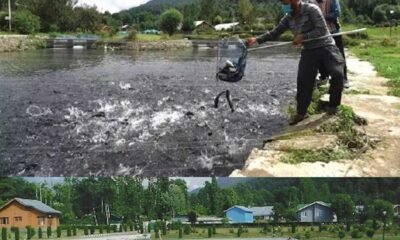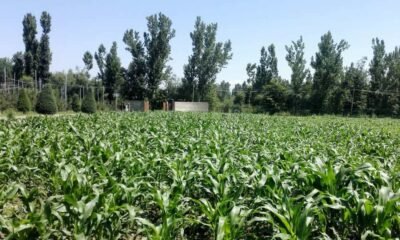Sand mining is the process of extracting sand from in and around the rivers, streams, lakes etc. Sand is also mined from beaches and inland dunes and dredges from ocean beds and river beds. In modern times sand is considered to be an essential raw material for construction purposes. As such, individual and private companies are increasingly demanding sand for construction purposes and this has placed immense pressure on sand resources. As a practice it is becoming an environmental issue as the demand for sand has been persistently witnessing an increase in industry and construction sectors of the economy especially in the developing pockets of the world. In developing nations, including India the annual demand for sand has been witnessing a perpetual rise of 07%. This has led to both an increase in the demand and price of sand in the open market. At the same time, people have been witnessing a profitable venture out of mining sand both legally and illegally leading to a number of issues and concerns.
Mining has been identified as the spine of the construction and infrastructure-centric economic growth and development process of the developing world, India being no exception to the same. Given the geographic extent of the country, the sand resources in the country have been plenty. However, like any other natural resource, the quantum of sand in India is limited. The usage however has been in practice right from the pre-historic times, the demand and usage being all time high in the contemporary times. The first recorded history of mining in India dates back to 1774 when the English company was granted permission by the East India Company for mining coal in the Raniganj coal fields.
After the colonial independence of the country, the growth of mining under the aegis of successive five-year planning processes has been quite speedy. Mining is among the significant economic activities of the country. The Gross Domestic Product (GDP) contribution of mining in India ranges between 2.2% and 2.5%. Given the historicity associated with mining in the country, its extraction and utilization processes have undergone a major shift towards modernization. The economic reforms of the 1991 and 1993 National Mining Policy further especially contributed towards the growth of the mining sector. The Indian mining industry in contemporary times provides job opportunities to around 7 lakh individuals. Given the diversity of the mining activities across the country, each state specializes in a related activity that it possesses a comparative advantage in especially in light of the reserves.
Given the geographic nature and extent of the region of Jammu and Kashmir, sand deposits in the region have been a common sight. At the same time, given the cold climate of the region, the need for secure housing has always been prioritized by the populace and governance of Jammu and Kashmir. With the evolution of construction processes and techniques, the shift from traditional wooden houses towards modern concrete houses has been widely witnessed. One of the main raw materials used for the construction of such houses has been identified as sand.
There are approximately 261 mineral blocks across the districts of Kashmir amongst whom the majority are situated along the bank of the river Jhelum. The mineral blocks in Kashmir contain sand deposits and various other minerals. One of the mining hotspots of the Kashmir division is the town of Bijbehara, locally known as Vejibror. While Bijbihara is also known as the town of Chinars, it has historically been a significant contributor towards the local economy. The town is located on National Highway 44 along the extended banks of the Jhelum River. It is also known as “Town of Chinars”. It is situated about 45 km from the capital of the Union Territory of Jammu and Kashmir, Srinagar. Within the Bijbehara town, the area of Gadhanji-Pora is particularly the committed hotspot of mining activities. It is situated approximately half a kilometre away from the Sub-District headquarters of Bijbehara.
According to the stakeholders, the most prolific user of sand is the construction industry. Individuals are increasingly demanding sand for domestic and commercial construction purposes. While there has been an increase in both the demand and prices of the resource, it has placed immense pressure on the local sand resources and deposits. Locally sand is being used in almost every construction-related activity from cement and concrete to plastering, roofing, grouting, painting etc. It is also commonly used in constructions like mortar, concrete, and cement strength, mass and stability.
Because of its smooth texture, better bonding qualities, and low impurity concentration, river sand is the most often utilised in Kashmir due to its quality, quantity and availability. Sand is the key component of concertation. Sand mining is rampant at many places along the Jhelum River, especially in the Bijbehara.
Given the extensive mining in the region, at certain points, the miners have breached the banks of rivers. The miners often drive their heavy vehicles straight into the water causing huge damages to the bunds along the river. These miners have lately also been using other heavy machinery like machine excavators and bulldozers in attempts to extract more sand in less time. By removing more sand than the rivers can naturally replace with the sediments it carries downstream, sand mining activities carve a deeper and narrower bed. It further goes on to lower the water levels in the river below the usual, speeds up the flow and erodes the banks. The biodiversity within and along the river is damaged. The fishes and other aquatic species that closely rely on the local bio-diversity are increasingly coming under threat.
Abdul Rehman, a local resident and fisherman, who has been fishing for the past 40 years describes his deteriorating experience, “Earlier if I covered an area of 3 km in the river, I would catch 6-8 kilograms of fish. Now, covering the same distance, I barely manage to catch 250 grams”. People from the Pazalpora area of Bijbehara, where the banks have been breached at multiple places, lament that they have been left all the more vulnerable to reoccurring floods because of unthoughtful activities like these.
The sand miners in and around the Bijbehara area of Anantnag district have been vandalizing the Jhelum River illegally. The damage is being increased manifold by the increasing use of heavy machinery for speedy mining of sand. After the devastating floods of 2014, the state government has been spending a significant amount of state money on the restoration, repair and upgrading of the banks of the river Jhelum. The so called and rightly called, ‘sand mafia’ across the valley in general and Bijbehara area in particular is breaching the sensitive river banks for the monetary interest of a few greedy people.
As such, as a collective voice basing our understanding on the facts mentioned above, it falls upon both people and the authorities to look deeper into the issue. As a matter of sustainability, now is the high time that the matter is dealt with an iron fist.
The authors are affiliated with the Department of Economics, Islamic University of Science and Technology and can be reached at dhaarmehak@gmail.com

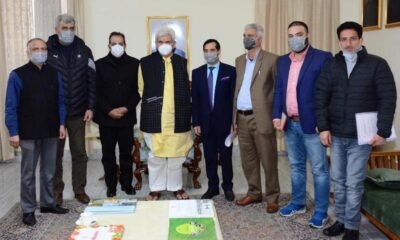

 Industry3 years ago
Industry3 years ago
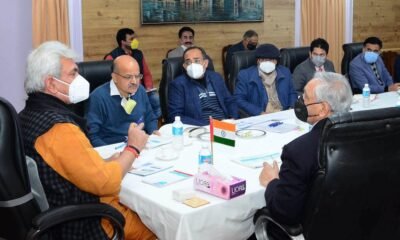

 Energy4 years ago
Energy4 years ago


 Economy1 year ago
Economy1 year ago
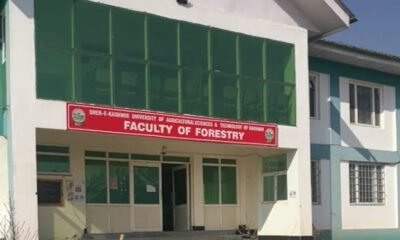

 Infra3 years ago
Infra3 years ago
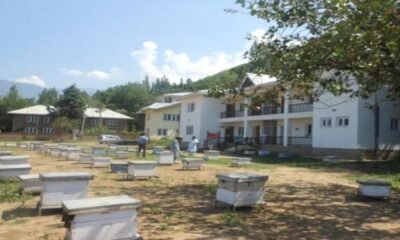

 AgriBiz3 years ago
AgriBiz3 years ago
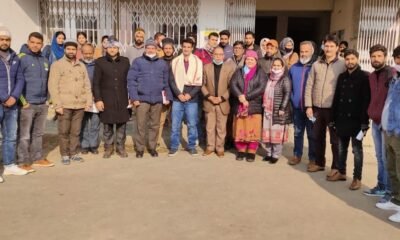

 Careers4 years ago
Careers4 years ago
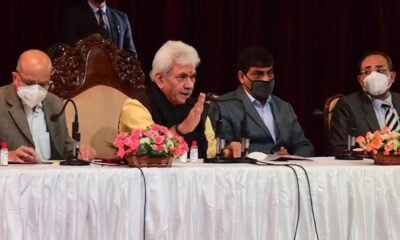

 Economy4 years ago
Economy4 years ago


 Industry4 years ago
Industry4 years ago








